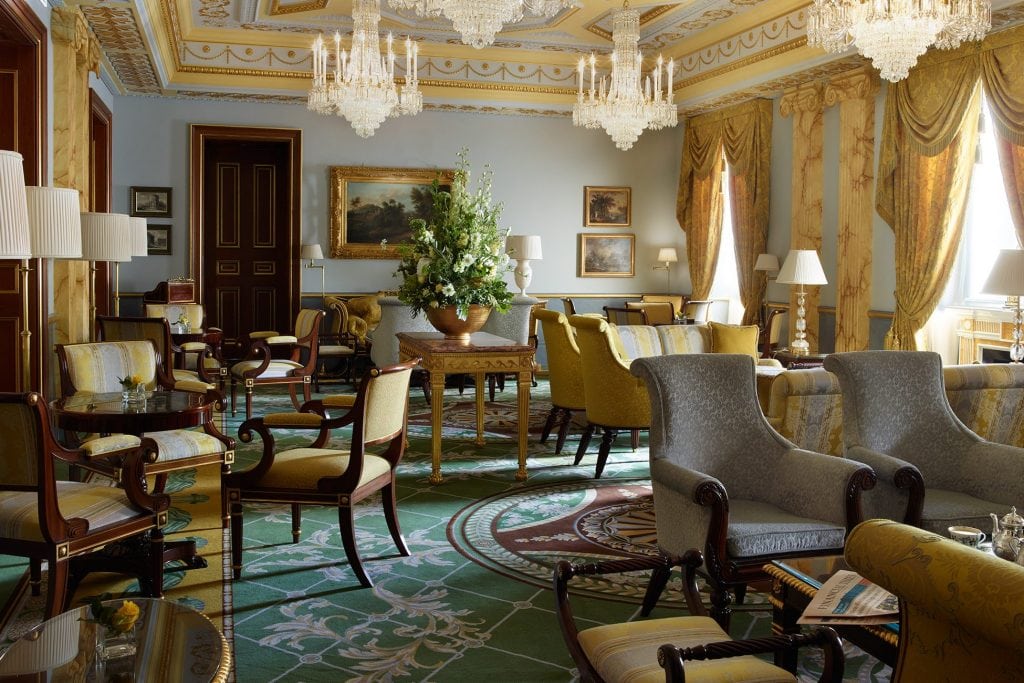Skift Take
While we sometimes focus our adulation in other spheres such as startups and their founders, hoteliers need to be recognized for the hidden creativity that goes into doing their jobs well.
Colin Nagy, head of strategy at Fred & Farid, a global advertising agency, writes this opinion column for Skift on hospitality, innovation, and business travel.
“On Experience” dissects customer-centric experiences and innovation across hospitality, aviation, and beyond. You can read all of his columns here.
A few months ago, I had the opportunity to give a talk at the morning meeting at a great hotel. It was a 30-minute free flowing discussion on topics I’ve been thinking about regarding community, customer experience, and programming, and general observations from different regions.
Then I was a fly on the wall for some internal discussions. We covered a lot in a short time, and it was military in its precision. Participants discussed guests and their needs in detail, and intelligence flooded in from multiple staff members. They solved problems on the fly. Not only did they discuss these topics, but they quickly and efficiently acted upon them down to deduced preferences from outside sources.
It made me think of the hotel as this incredible coral reef with different tides surging in, energy levels, and colors of fish flowing in and out on a daily basis. Everything about the hotel was a living ecosystem that was ever-changing with the days.
The rigor and precision that went into these discussions was astonishing. I won’t divulge any details, but it was delightful and thoughtful when the hotel made a reservation how staff members exacted preferences of how guests took their tea. I would never have expected these levels of anticipation. Seeing behind the curtain was a joy to behold, and it made me have even more respect for the daily poetry of the hotelier.
It also made me realize that the broader world does not understand hospitality. While we may have our current obsessions with startup heroes and people launching rockets to the stratosphere, this profession and all it entails is an incredibly creative act. When executed well, you are left with just a feeling, and not many see the mechanisms that went into creating the perfect stage set of experience.
When the invisible becomes visible, you realize that real creativity lies at the heart of hospitality and isn’t just the purview of the so-called creatives: those who make the stylized image campaigns and beautiful interior designs.
The frontline staff, when dealing with a problematic guest, get creative. It could be the assistant front manager remembering guests on site and surprising them with the rare fruit they enjoy; the housekeeper at the Lanesborough London who returns the borrowed book to guests’ bedsides that they didn’t quite finish at the stay three years ago, with the bookmark correctly in place.
Hoteliers deserve much more credit than they get for the hidden and highly creative magic they create when they do their jobs well. And when you learn about the core, underlying principles, they apply to many more places than a place to rest your head. They work everywhere.
Anticipation
This is the legwork in understanding people, their context, mood, and motivations. Sure, it makes sense in a hotel context but also in many others like sales or building relationships with clients.
Problem-solving
Hoteliers are often on the front lines of particularly tricky problems. But the ability to take something in the moment and diffuse it with grace and courtesy is a skill that more people can use both in business and personal contexts.
Empathy
At the root of every excellent hospitality experience, there is empathy. Understanding the more profound, subconscious needs of someone and not just addressing the clear, expressed need.
Attention to detail
We may not always see it, but we feel attention to detail in a lobby, guest room, or space in a hotel. There are signs of an effort that make a bathroom spotless, or a floral arrangement flawless. This characteristic translates into many other realms.
In a famous talk at a University of Texas commencement, Admiral Bill McRaven cited the profound lessons he learned from making a perfect bed. It was something that SEAL instructors hammered candidates on in training, but the more significant reason is making your bed will also reinforce the fact that little things in life matter. If you can’t do the little things right, you will never do the big things right.
When someone executes these things for a guest — a client — or just a person in your life, they feel cared about, respected, and treated with dignity. You’d be surprised the outcomes that happen when this is the starting point of interaction.
Have a confidential tip for Skift? Get in touch
Tags: customer service, hospitality, On Experience, personalization
Photo credit: The Withdrawing Room at the Lanesborough London hotel. Lanesborough London

